年份:2017 类型:纪录片
主演:加里·奥德曼,克里斯汀·斯科特·托马斯,莉莉·詹姆斯,本·门德尔森
导演:乔·赖特
地区:英国
语言:英语
剧情简介
影片讲述了英国首相温斯顿·丘吉尔在任首相期间面临的最重要的考验:是作为俘虏向纳粹投降,还是团结人民抵抗?丘吉尔将团结全国人民为自由而战,试图改变世界历史的进程,在黎明前的黑暗中生存下来。
印度议员、前联合国副秘书长沙希·塔鲁尔3月10日在《华盛顿邮报》撰文:《被好莱坞美化的丘吉尔是一名刽子手》
丘吉尔曾说过:“历史最终一定会善待我的,因为我希望成为一个亲自书写历史的人。”其实,他的担心是多余的。虽然他是20世纪出现的大屠杀凶手之一,但不像希特勒和斯大林,在西方社会,他得以逃脱历史的审判。他曾被授予诺贝尔奖(竟然是文学奖)。而如今,饰演丘吉尔的演员加里·奥德曼还成了奥斯卡影帝。
正如好莱坞电影所证,丘吉尔的声誉几乎全归功于他二战期间激动人心的雄辩和天赋般的华丽辞藻(哈罗尔德·伊万斯曾将丘吉尔称为“文明堡垒上伫立的不列颠狮心王”)。
“我们不会疲惫,也不会失败。我们会一直战斗到最后……我们将在沙滩上战斗,我们将在降落跑道上战斗,我们将在田野间和大道上战斗……我们永不屈服”,英国修正派历史家约翰·查姆理曾将这几句贬斥为“听起来崇高的废话”。
在二战期间,丘吉尔表示自己赞成“恐怖性轰炸”。他曾写道,他希望以“重型轰炸机带来彻底的毁灭性打击”。最终造成诸如德累斯顿轰炸事件带来的恐慌。
丘吉尔在爱尔兰独立战争中担任陆军空军大臣,也是为数不多支持轰炸爱尔兰抗议者的英国官员之一。1920年,他认为飞机应该用“机载机关枪或炸弹”来驱散抗议者。
面对1921年美索不达米亚的暴动,作为殖民地大臣,丘吉尔表现得简直像一名战争罪犯:“我强烈支持对未开化的部落使用毒气弹,这将起到扩散恐惧感的效果。”他下令在美索不达米亚进行大规模轰炸,在45分钟内彻底将一个村庄从地球表面抹去了。
在阿富汗,丘吉尔宣布:“普什图人要认识到不列颠民族是比他们更加高等的。反对者应立即杀掉,毫不留情。”他写道:“我们有系统地一个村接着一个村前进,惩戒性地破坏:摧毁房屋,填平水井,炸倒塔楼,砍倒茂密的树林,烧毁庄稼,破坏水库,抓到一个部落成员应立即捅死或砍死。”
在肯尼亚,为了把富饶的高地腾给白人殖民者,当地人被强行迁离,超过15万人被送入集中营。丘吉尔若不是指挥官,便是共谋者。在他的规定下,为了折磨肯尼亚人,英国人强奸、阉割他们,用烟头烫他们身体的敏感部位,此外还进行电击。
不过,丘吉尔罪行的主要受害者当数印度人。“拥有野兽般信仰的野兽民族”,丘吉尔是如此“风雅”地称呼他们的。他想在印度使用化学武器,但是被内阁成员们否决了。他批评后者“神经兮兮”,认为“英国涉印事务部门拒绝对当地人民使用化学武器是毫无道理的”。
1941年,丘吉尔宣布不在印度以及有色人种殖民地推动《大西洋宪章》的实施。由此观之,他被尊为“自由的圣徒”就更显荒谬了。他拒绝承认有色人种与自己拥有同等的权利。“甘地主义及其所主张的一切早晚都会被彻底粉碎”,丘吉尔曾这样说道。
在此类事件中,丘吉尔可谓是英国人中最激进的。他的看法之极端,甚至不能被解释为当时的普遍想法。就连他自己的印度事务大臣爱默利都承认,丘吉尔和希特勒的观点之间的差异其实并不大。
多亏丘吉尔,约四百万孟加拉人死于1943年的饥荒。他下令将食物从挨饿的印度人那里转给口粮充裕的英国士兵,甚至用来补充位于希腊和其他地区的欧洲储备仓库。当有人提及那些遭罪的印度受难者时,丘吉尔回应称,饥荒之所以出现,责任在印度人自己,因为“他们像兔子一样繁殖”。
在《丘吉尔的秘密战争》中,玛杜斯里·慕克吉尖锐地叙述丘吉尔在孟加拉发生饥荒时的作为。有文件表明,当印度人挨饿时,英国大量购买粮食,导致粮价上涨,印度本国生产的粮食盈余被价格导向出口市场。满载小麦的澳大利亚货船被禁止在加尔各答卸货(在加尔各答,饿死者横尸大街),丘吉尔反而下令把粮食运送至地中海和巴尔干地区的屯粮仓库增加缓冲存货,以防希腊和南斯拉夫未来可能的入侵。欧洲的粮仓渐满,而孟加拉人却在一个个死去。
描绘这个龌龊之徒的又一部“圣人传”夺得奥斯卡奖。丘吉尔曾提议对伊拉克人使用毒气,1944年他还曾下令撞倒大街上的雅典抗议者。对于这些遇难者来说,对于普什图人、爱尔兰人以及像我这样的印度人来说,我们永远也不会明白,为何几句华而不实的演讲辞就能够洗净他散发种族主义气味的双手所沾染的鲜血。
我们中的多数人会永远记住:丘吉尔是一名战争罪犯,是正义和人道的对立面,是目光狭隘的帝国主义者,他对于非白人种族的抗议充耳不闻。归根结底,他最大的失败——他漫长的至暗时刻——是不断企图阻碍我们获得自由。
(青年观察者庄蕴菲译自3月10日美国《华盛顿邮报》)
-----------------------------------------------------------------------------------------------------
原文:
In Winston Churchill, Hollywood rewards a mass murderer
Shashi TharoorMarch 13, 2018
A STATUE of former British prime minister Winston Churchill stands near the Victoria Tower of the Houses of Parliament, as a British Union f
“HISTORY”, Winston Churchill said, “will be kind to me, for I intend to write it myself.” He needn’t have bothered. He was one of the great mass murderers of the 20th century, yet is the only one, unlike Hitler and Stalin, to have escaped historical odium in the West. He has been crowned with a Nobel Prize (for literature, no less), and now, an actor portraying him (Gary Oldman) has been awarded an Oscar.
As Hollywood confirms, Churchill’s reputation (as what Harold Evans has called “the British Lionheart on the ramparts of civilisation”) rests almost entirely on his stirring rhetoric and his talent for a fine phrase during World War II. “We shall not flag nor fail. We shall go on to the end ... We shall fight on the beaches, we shall fight on the landing grounds, we shall fight in the fields and in the streets ... We shall never surrender.” (The revisionist British historian, John Charmley dismissed this as “sublime nonsense”.)
Words, in the end, are all that Churchill admirers can point to. His actions are another matter altogether.
During World War II, Churchill declared himself in favour of “terror bombing”. He wrote that he wanted “absolutely devastating, exterminating attacks by very heavy bombers”. Horrors such as the firebombing of Dresden were the result.
In the fight for Irish independence, Churchill, in his capacity as secretary of state for war and air, was one of the few British officials in favour of bombing Irish protesters, suggesting in 1920 that airplanes should use “machine-gun fire or bombs” to scatter them.
Dealing with unrest in Mesopotamia in 1921, as secretary of state for the colonies, Churchill acted as a war criminal: “I am strongly in favour of using poisoned gas against the uncivilised tribes; it would spread a lively terror.” He ordered large-scale bombing of Mesopotamia, with an entire village wiped out in 45 minutes.
In Afghanistan, Churchill declared that the Pakhtuns “needed to recognise the superiority of [the British] race” and that “all who resist will be killed without quarter”. He wrote: “We proceeded systematically, village by village, and we destroyed the houses, filled up the wells, blew down the towers, cut down the great shady trees, burned the crops and broke the reservoirs in punitive devastation ... Every tribesman caught was speared or cut down at once.”
In Kenya, Churchill either directed or was complicit in policies involving the forced relocation of local people from the fertile highlands to make way for white colonial settlers and the forcing of more than 150,000 people into concentration camps. Rape, castration, lit cigarettes on tender spots, and electric shocks were all used by the British authorities to torture Kenyans under Churchill’s rule.
But the principal victims of Winston Churchill were the Indians — “a beastly people with a beastly religion,” as he charmingly called them. He wanted to use chemical weapons in India but was shot down by his cabinet colleagues, whom he criticised for their “squeamishness”, declaring that “the objections of the India Office to the use of gas against natives are unreasonable”.
Churchill’s beatification as an apostle of freedom seems all the more preposterous given his 1941 declaration that the Atlantic Charter’s principles would not apply to India and the coloured colonies. He refused to see people of colour as entitled to the same rights as himself. “Gandhi-ism and all it stands for,” he declared, “will, sooner or later, have to be grappled with and finally crushed.”
In such matters, Churchill was the most reactionary of Englishmen, with views so extreme they cannot be excused as being reflective of their times. Even his own secretary of state for India, Leopold Amery, confessed that he could see very little difference between Churchill’s attitude and Adolf Hitler’s.
Thanks to Churchill, some four million Bengalis starved to death in a 1943 famine. Churchill ordered the diversion of food from starving Indian civilians to well-supplied British soldiers and even to top up European stockpiles in Greece and elsewhere. When reminded of the suffering of his Indian victims, his response was that the famine was their own fault, he said, for “breeding like rabbits”.
Madhusree Mukerjee’s searing account of Churchill’s role in the Bengal famine, Churchill’s Secret War, documents that while Indians starved, prices for foodgrains were inflated by British purchases and India’s own surplus grains were exported, while Australian ships laden with wheat were not allowed to unload their cargo at Calcutta (where the bodies of those who had died of starvation littered the streets). Instead, Churchill ordered that grain be shipped to storage depots in the Mediterranean and the Balkans to increase the buffer stocks for a possible future invasion of Greece and Yugoslavia. European warehouses filled up as Bengalis died.
This week’s Oscar rewards yet another hagiography of this odious man. To the Iraqis whom Churchill advocated gassing, the Greek protesters on the streets of Athens who were mowed down on Churchill’s orders in 1944, sundry Pakhtuns and Irish, as well as to Indians like myself, it will always be a mystery why a few bombastic speeches have been enough to wash the bloodstains off Churchill’s racist hands.
Many of us will remember Churchill as a war criminal and an enemy of decency and humanity, a blinkered imperialist untroubled by the oppression of non-white peoples. Ultimately, his great failure — his long darkest hour — was his constant effort to deny us freedom.
The writer is the author of Inglorious Empire: What the British Did to India. He chairs the Indian parliament’s foreign affairs committee.
—By arrangement with The Washington Post
Published in Dawn, March 13th, 2018
{if:"
印度议员、前联合国副秘书长沙希·塔鲁尔3月10日在《华盛顿邮报》撰文:《被好莱坞美化的丘吉尔是一名刽子手》
丘吉尔曾说过:“历史最终一定会善待我的,因为我希望成为一个亲自书写历史的人。”其实,他的担心是多余的。虽然他是20世纪出现的大屠杀凶手之一,但不像希特勒和斯大林,在西方社会,他得以逃脱历史的审判。他曾被授予诺贝尔奖(竟然是文学奖)。而如今,饰演丘吉尔的演员加里·奥德曼还成了奥斯卡影帝。
正如好莱坞电影所证,丘吉尔的声誉几乎全归功于他二战期间激动人心的雄辩和天赋般的华丽辞藻(哈罗尔德·伊万斯曾将丘吉尔称为“文明堡垒上伫立的不列颠狮心王”)。
“我们不会疲惫,也不会失败。我们会一直战斗到最后……我们将在沙滩上战斗,我们将在降落跑道上战斗,我们将在田野间和大道上战斗……我们永不屈服”,英国修正派历史家约翰·查姆理曾将这几句贬斥为“听起来崇高的废话”。
在二战期间,丘吉尔表示自己赞成“恐怖性轰炸”。他曾写道,他希望以“重型轰炸机带来彻底的毁灭性打击”。最终造成诸如德累斯顿轰炸事件带来的恐慌。
丘吉尔在爱尔兰独立战争中担任陆军空军大臣,也是为数不多支持轰炸爱尔兰抗议者的英国官员之一。1920年,他认为飞机应该用“机载机关枪或炸弹”来驱散抗议者。
面对1921年美索不达米亚的暴动,作为殖民地大臣,丘吉尔表现得简直像一名战争罪犯:“我强烈支持对未开化的部落使用毒气弹,这将起到扩散恐惧感的效果。”他下令在美索不达米亚进行大规模轰炸,在45分钟内彻底将一个村庄从地球表面抹去了。
在阿富汗,丘吉尔宣布:“普什图人要认识到不列颠民族是比他们更加高等的。反对者应立即杀掉,毫不留情。”他写道:“我们有系统地一个村接着一个村前进,惩戒性地破坏:摧毁房屋,填平水井,炸倒塔楼,砍倒茂密的树林,烧毁庄稼,破坏水库,抓到一个部落成员应立即捅死或砍死。”
在肯尼亚,为了把富饶的高地腾给白人殖民者,当地人被强行迁离,超过15万人被送入集中营。丘吉尔若不是指挥官,便是共谋者。在他的规定下,为了折磨肯尼亚人,英国人强奸、阉割他们,用烟头烫他们身体的敏感部位,此外还进行电击。
不过,丘吉尔罪行的主要受害者当数印度人。“拥有野兽般信仰的野兽民族”,丘吉尔是如此“风雅”地称呼他们的。他想在印度使用化学武器,但是被内阁成员们否决了。他批评后者“神经兮兮”,认为“英国涉印事务部门拒绝对当地人民使用化学武器是毫无道理的”。
1941年,丘吉尔宣布不在印度以及有色人种殖民地推动《大西洋宪章》的实施。由此观之,他被尊为“自由的圣徒”就更显荒谬了。他拒绝承认有色人种与自己拥有同等的权利。“甘地主义及其所主张的一切早晚都会被彻底粉碎”,丘吉尔曾这样说道。
在此类事件中,丘吉尔可谓是英国人中最激进的。他的看法之极端,甚至不能被解释为当时的普遍想法。就连他自己的印度事务大臣爱默利都承认,丘吉尔和希特勒的观点之间的差异其实并不大。
多亏丘吉尔,约四百万孟加拉人死于1943年的饥荒。他下令将食物从挨饿的印度人那里转给口粮充裕的英国士兵,甚至用来补充位于希腊和其他地区的欧洲储备仓库。当有人提及那些遭罪的印度受难者时,丘吉尔回应称,饥荒之所以出现,责任在印度人自己,因为“他们像兔子一样繁殖”。
在《丘吉尔的秘密战争》中,玛杜斯里·慕克吉尖锐地叙述丘吉尔在孟加拉发生饥荒时的作为。有文件表明,当印度人挨饿时,英国大量购买粮食,导致粮价上涨,印度本国生产的粮食盈余被价格导向出口市场。满载小麦的澳大利亚货船被禁止在加尔各答卸货(在加尔各答,饿死者横尸大街),丘吉尔反而下令把粮食运送至地中海和巴尔干地区的屯粮仓库增加缓冲存货,以防希腊和南斯拉夫未来可能的入侵。欧洲的粮仓渐满,而孟加拉人却在一个个死去。
描绘这个龌龊之徒的又一部“圣人传”夺得奥斯卡奖。丘吉尔曾提议对伊拉克人使用毒气,1944年他还曾下令撞倒大街上的雅典抗议者。对于这些遇难者来说,对于普什图人、爱尔兰人以及像我这样的印度人来说,我们永远也不会明白,为何几句华而不实的演讲辞就能够洗净他散发种族主义气味的双手所沾染的鲜血。
我们中的多数人会永远记住:丘吉尔是一名战争罪犯,是正义和人道的对立面,是目光狭隘的帝国主义者,他对于非白人种族的抗议充耳不闻。归根结底,他最大的失败——他漫长的至暗时刻——是不断企图阻碍我们获得自由。
(青年观察者庄蕴菲译自3月10日美国《华盛顿邮报》)
-----------------------------------------------------------------------------------------------------
原文:
In Winston Churchill, Hollywood rewards a mass murderer
Shashi TharoorMarch 13, 2018
A STATUE of former British prime minister Winston Churchill stands near the Victoria Tower of the Houses of Parliament, as a British Union f
“HISTORY”, Winston Churchill said, “will be kind to me, for I intend to write it myself.” He needn’t have bothered. He was one of the great mass murderers of the 20th century, yet is the only one, unlike Hitler and Stalin, to have escaped historical odium in the West. He has been crowned with a Nobel Prize (for literature, no less), and now, an actor portraying him (Gary Oldman) has been awarded an Oscar.
As Hollywood confirms, Churchill’s reputation (as what Harold Evans has called “the British Lionheart on the ramparts of civilisation”) rests almost entirely on his stirring rhetoric and his talent for a fine phrase during World War II. “We shall not flag nor fail. We shall go on to the end ... We shall fight on the beaches, we shall fight on the landing grounds, we shall fight in the fields and in the streets ... We shall never surrender.” (The revisionist British historian, John Charmley dismissed this as “sublime nonsense”.)
Words, in the end, are all that Churchill admirers can point to. His actions are another matter altogether.
During World War II, Churchill declared himself in favour of “terror bombing”. He wrote that he wanted “absolutely devastating, exterminating attacks by very heavy bombers”. Horrors such as the firebombing of Dresden were the result.
In the fight for Irish independence, Churchill, in his capacity as secretary of state for war and air, was one of the few British officials in favour of bombing Irish protesters, suggesting in 1920 that airplanes should use “machine-gun fire or bombs” to scatter them.
Dealing with unrest in Mesopotamia in 1921, as secretary of state for the colonies, Churchill acted as a war criminal: “I am strongly in favour of using poisoned gas against the uncivilised tribes; it would spread a lively terror.” He ordered large-scale bombing of Mesopotamia, with an entire village wiped out in 45 minutes.
In Afghanistan, Churchill declared that the Pakhtuns “needed to recognise the superiority of [the British] race” and that “all who resist will be killed without quarter”. He wrote: “We proceeded systematically, village by village, and we destroyed the houses, filled up the wells, blew down the towers, cut down the great shady trees, burned the crops and broke the reservoirs in punitive devastation ... Every tribesman caught was speared or cut down at once.”
In Kenya, Churchill either directed or was complicit in policies involving the forced relocation of local people from the fertile highlands to make way for white colonial settlers and the forcing of more than 150,000 people into concentration camps. Rape, castration, lit cigarettes on tender spots, and electric shocks were all used by the British authorities to torture Kenyans under Churchill’s rule.
But the principal victims of Winston Churchill were the Indians — “a beastly people with a beastly religion,” as he charmingly called them. He wanted to use chemical weapons in India but was shot down by his cabinet colleagues, whom he criticised for their “squeamishness”, declaring that “the objections of the India Office to the use of gas against natives are unreasonable”.
Churchill’s beatification as an apostle of freedom seems all the more preposterous given his 1941 declaration that the Atlantic Charter’s principles would not apply to India and the coloured colonies. He refused to see people of colour as entitled to the same rights as himself. “Gandhi-ism and all it stands for,” he declared, “will, sooner or later, have to be grappled with and finally crushed.”
In such matters, Churchill was the most reactionary of Englishmen, with views so extreme they cannot be excused as being reflective of their times. Even his own secretary of state for India, Leopold Amery, confessed that he could see very little difference between Churchill’s attitude and Adolf Hitler’s.
Thanks to Churchill, some four million Bengalis starved to death in a 1943 famine. Churchill ordered the diversion of food from starving Indian civilians to well-supplied British soldiers and even to top up European stockpiles in Greece and elsewhere. When reminded of the suffering of his Indian victims, his response was that the famine was their own fault, he said, for “breeding like rabbits”.
Madhusree Mukerjee’s searing account of Churchill’s role in the Bengal famine, Churchill’s Secret War, documents that while Indians starved, prices for foodgrains were inflated by British purchases and India’s own surplus grains were exported, while Australian ships laden with wheat were not allowed to unload their cargo at Calcutta (where the bodies of those who had died of starvation littered the streets). Instead, Churchill ordered that grain be shipped to storage depots in the Mediterranean and the Balkans to increase the buffer stocks for a possible future invasion of Greece and Yugoslavia. European warehouses filled up as Bengalis died.
This week’s Oscar rewards yet another hagiography of this odious man. To the Iraqis whom Churchill advocated gassing, the Greek protesters on the streets of Athens who were mowed down on Churchill’s orders in 1944, sundry Pakhtuns and Irish, as well as to Indians like myself, it will always be a mystery why a few bombastic speeches have been enough to wash the bloodstains off Churchill’s racist hands.
Many of us will remember Churchill as a war criminal and an enemy of decency and humanity, a blinkered imperialist untroubled by the oppression of non-white peoples. Ultimately, his great failure — his long darkest hour — was his constant effort to deny us freedom.
The writer is the author of Inglorious Empire: What the British Did to India. He chairs the Indian parliament’s foreign affairs committee.
—By arrangement with The Washington Post
Published in Dawn, March 13th, 2018
"<>"" && "
印度议员、前联合国副秘书长沙希·塔鲁尔3月10日在《华盛顿邮报》撰文:《被好莱坞美化的丘吉尔是一名刽子手》
丘吉尔曾说过:“历史最终一定会善待我的,因为我希望成为一个亲自书写历史的人。”其实,他的担心是多余的。虽然他是20世纪出现的大屠杀凶手之一,但不像希特勒和斯大林,在西方社会,他得以逃脱历史的审判。他曾被授予诺贝尔奖(竟然是文学奖)。而如今,饰演丘吉尔的演员加里·奥德曼还成了奥斯卡影帝。
正如好莱坞电影所证,丘吉尔的声誉几乎全归功于他二战期间激动人心的雄辩和天赋般的华丽辞藻(哈罗尔德·伊万斯曾将丘吉尔称为“文明堡垒上伫立的不列颠狮心王”)。
“我们不会疲惫,也不会失败。我们会一直战斗到最后……我们将在沙滩上战斗,我们将在降落跑道上战斗,我们将在田野间和大道上战斗……我们永不屈服”,英国修正派历史家约翰·查姆理曾将这几句贬斥为“听起来崇高的废话”。
在二战期间,丘吉尔表示自己赞成“恐怖性轰炸”。他曾写道,他希望以“重型轰炸机带来彻底的毁灭性打击”。最终造成诸如德累斯顿轰炸事件带来的恐慌。
丘吉尔在爱尔兰独立战争中担任陆军空军大臣,也是为数不多支持轰炸爱尔兰抗议者的英国官员之一。1920年,他认为飞机应该用“机载机关枪或炸弹”来驱散抗议者。
面对1921年美索不达米亚的暴动,作为殖民地大臣,丘吉尔表现得简直像一名战争罪犯:“我强烈支持对未开化的部落使用毒气弹,这将起到扩散恐惧感的效果。”他下令在美索不达米亚进行大规模轰炸,在45分钟内彻底将一个村庄从地球表面抹去了。
在阿富汗,丘吉尔宣布:“普什图人要认识到不列颠民族是比他们更加高等的。反对者应立即杀掉,毫不留情。”他写道:“我们有系统地一个村接着一个村前进,惩戒性地破坏:摧毁房屋,填平水井,炸倒塔楼,砍倒茂密的树林,烧毁庄稼,破坏水库,抓到一个部落成员应立即捅死或砍死。”
在肯尼亚,为了把富饶的高地腾给白人殖民者,当地人被强行迁离,超过15万人被送入集中营。丘吉尔若不是指挥官,便是共谋者。在他的规定下,为了折磨肯尼亚人,英国人强奸、阉割他们,用烟头烫他们身体的敏感部位,此外还进行电击。
不过,丘吉尔罪行的主要受害者当数印度人。“拥有野兽般信仰的野兽民族”,丘吉尔是如此“风雅”地称呼他们的。他想在印度使用化学武器,但是被内阁成员们否决了。他批评后者“神经兮兮”,认为“英国涉印事务部门拒绝对当地人民使用化学武器是毫无道理的”。
1941年,丘吉尔宣布不在印度以及有色人种殖民地推动《大西洋宪章》的实施。由此观之,他被尊为“自由的圣徒”就更显荒谬了。他拒绝承认有色人种与自己拥有同等的权利。“甘地主义及其所主张的一切早晚都会被彻底粉碎”,丘吉尔曾这样说道。
在此类事件中,丘吉尔可谓是英国人中最激进的。他的看法之极端,甚至不能被解释为当时的普遍想法。就连他自己的印度事务大臣爱默利都承认,丘吉尔和希特勒的观点之间的差异其实并不大。
多亏丘吉尔,约四百万孟加拉人死于1943年的饥荒。他下令将食物从挨饿的印度人那里转给口粮充裕的英国士兵,甚至用来补充位于希腊和其他地区的欧洲储备仓库。当有人提及那些遭罪的印度受难者时,丘吉尔回应称,饥荒之所以出现,责任在印度人自己,因为“他们像兔子一样繁殖”。
在《丘吉尔的秘密战争》中,玛杜斯里·慕克吉尖锐地叙述丘吉尔在孟加拉发生饥荒时的作为。有文件表明,当印度人挨饿时,英国大量购买粮食,导致粮价上涨,印度本国生产的粮食盈余被价格导向出口市场。满载小麦的澳大利亚货船被禁止在加尔各答卸货(在加尔各答,饿死者横尸大街),丘吉尔反而下令把粮食运送至地中海和巴尔干地区的屯粮仓库增加缓冲存货,以防希腊和南斯拉夫未来可能的入侵。欧洲的粮仓渐满,而孟加拉人却在一个个死去。
描绘这个龌龊之徒的又一部“圣人传”夺得奥斯卡奖。丘吉尔曾提议对伊拉克人使用毒气,1944年他还曾下令撞倒大街上的雅典抗议者。对于这些遇难者来说,对于普什图人、爱尔兰人以及像我这样的印度人来说,我们永远也不会明白,为何几句华而不实的演讲辞就能够洗净他散发种族主义气味的双手所沾染的鲜血。
我们中的多数人会永远记住:丘吉尔是一名战争罪犯,是正义和人道的对立面,是目光狭隘的帝国主义者,他对于非白人种族的抗议充耳不闻。归根结底,他最大的失败——他漫长的至暗时刻——是不断企图阻碍我们获得自由。
(青年观察者庄蕴菲译自3月10日美国《华盛顿邮报》)
-----------------------------------------------------------------------------------------------------
原文:
In Winston Churchill, Hollywood rewards a mass murderer
Shashi TharoorMarch 13, 2018
A STATUE of former British prime minister Winston Churchill stands near the Victoria Tower of the Houses of Parliament, as a British Union f
“HISTORY”, Winston Churchill said, “will be kind to me, for I intend to write it myself.” He needn’t have bothered. He was one of the great mass murderers of the 20th century, yet is the only one, unlike Hitler and Stalin, to have escaped historical odium in the West. He has been crowned with a Nobel Prize (for literature, no less), and now, an actor portraying him (Gary Oldman) has been awarded an Oscar.
As Hollywood confirms, Churchill’s reputation (as what Harold Evans has called “the British Lionheart on the ramparts of civilisation”) rests almost entirely on his stirring rhetoric and his talent for a fine phrase during World War II. “We shall not flag nor fail. We shall go on to the end ... We shall fight on the beaches, we shall fight on the landing grounds, we shall fight in the fields and in the streets ... We shall never surrender.” (The revisionist British historian, John Charmley dismissed this as “sublime nonsense”.)
Words, in the end, are all that Churchill admirers can point to. His actions are another matter altogether.
During World War II, Churchill declared himself in favour of “terror bombing”. He wrote that he wanted “absolutely devastating, exterminating attacks by very heavy bombers”. Horrors such as the firebombing of Dresden were the result.
In the fight for Irish independence, Churchill, in his capacity as secretary of state for war and air, was one of the few British officials in favour of bombing Irish protesters, suggesting in 1920 that airplanes should use “machine-gun fire or bombs” to scatter them.
Dealing with unrest in Mesopotamia in 1921, as secretary of state for the colonies, Churchill acted as a war criminal: “I am strongly in favour of using poisoned gas against the uncivilised tribes; it would spread a lively terror.” He ordered large-scale bombing of Mesopotamia, with an entire village wiped out in 45 minutes.
In Afghanistan, Churchill declared that the Pakhtuns “needed to recognise the superiority of [the British] race” and that “all who resist will be killed without quarter”. He wrote: “We proceeded systematically, village by village, and we destroyed the houses, filled up the wells, blew down the towers, cut down the great shady trees, burned the crops and broke the reservoirs in punitive devastation ... Every tribesman caught was speared or cut down at once.”
In Kenya, Churchill either directed or was complicit in policies involving the forced relocation of local people from the fertile highlands to make way for white colonial settlers and the forcing of more than 150,000 people into concentration camps. Rape, castration, lit cigarettes on tender spots, and electric shocks were all used by the British authorities to torture Kenyans under Churchill’s rule.
But the principal victims of Winston Churchill were the Indians — “a beastly people with a beastly religion,” as he charmingly called them. He wanted to use chemical weapons in India but was shot down by his cabinet colleagues, whom he criticised for their “squeamishness”, declaring that “the objections of the India Office to the use of gas against natives are unreasonable”.
Churchill’s beatification as an apostle of freedom seems all the more preposterous given his 1941 declaration that the Atlantic Charter’s principles would not apply to India and the coloured colonies. He refused to see people of colour as entitled to the same rights as himself. “Gandhi-ism and all it stands for,” he declared, “will, sooner or later, have to be grappled with and finally crushed.”
In such matters, Churchill was the most reactionary of Englishmen, with views so extreme they cannot be excused as being reflective of their times. Even his own secretary of state for India, Leopold Amery, confessed that he could see very little difference between Churchill’s attitude and Adolf Hitler’s.
Thanks to Churchill, some four million Bengalis starved to death in a 1943 famine. Churchill ordered the diversion of food from starving Indian civilians to well-supplied British soldiers and even to top up European stockpiles in Greece and elsewhere. When reminded of the suffering of his Indian victims, his response was that the famine was their own fault, he said, for “breeding like rabbits”.
Madhusree Mukerjee’s searing account of Churchill’s role in the Bengal famine, Churchill’s Secret War, documents that while Indians starved, prices for foodgrains were inflated by British purchases and India’s own surplus grains were exported, while Australian ships laden with wheat were not allowed to unload their cargo at Calcutta (where the bodies of those who had died of starvation littered the streets). Instead, Churchill ordered that grain be shipped to storage depots in the Mediterranean and the Balkans to increase the buffer stocks for a possible future invasion of Greece and Yugoslavia. European warehouses filled up as Bengalis died.
This week’s Oscar rewards yet another hagiography of this odious man. To the Iraqis whom Churchill advocated gassing, the Greek protesters on the streets of Athens who were mowed down on Churchill’s orders in 1944, sundry Pakhtuns and Irish, as well as to Indians like myself, it will always be a mystery why a few bombastic speeches have been enough to wash the bloodstains off Churchill’s racist hands.
Many of us will remember Churchill as a war criminal and an enemy of decency and humanity, a blinkered imperialist untroubled by the oppression of non-white peoples. Ultimately, his great failure — his long darkest hour — was his constant effort to deny us freedom.
The writer is the author of Inglorious Empire: What the British Did to India. He chairs the Indian parliament’s foreign affairs committee.
—By arrangement with The Washington Post
Published in Dawn, March 13th, 2018
"<>"暂时没有网友评论该影片"}{end if}

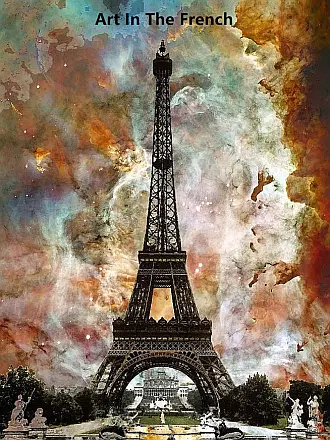

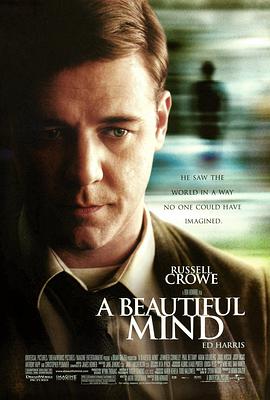
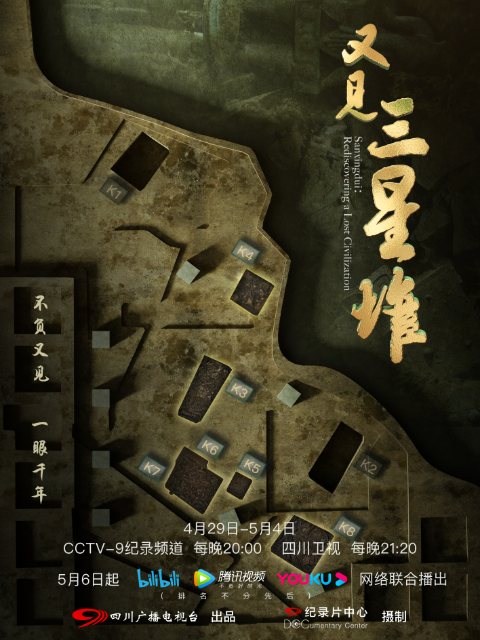

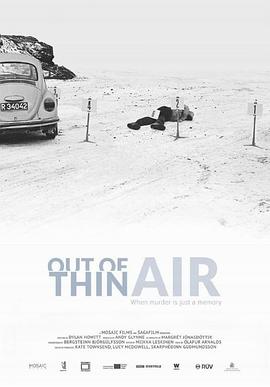




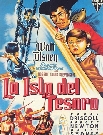

至暗时刻加长版影评
丘吉尔曾说过:“历史最终一定会善待我的,因为我希望成为一个亲自书写历史的人。”其实,他的担心是多余的。虽然他是20世纪出现的大屠杀凶手之一,但不像希特勒和斯大林,在西方社会,他得以逃脱历史的审判。他曾被授予诺贝尔奖(竟然是文学奖)。而如今,饰演丘吉尔的演员加里·奥德曼还成了奥斯卡影帝。
正如好莱坞电影所证,丘吉尔的声誉几乎全归功于他二战期间激动人心的雄辩和天赋般的华丽辞藻(哈罗尔德·伊万斯曾将丘吉尔称为“文明堡垒上伫立的不列颠狮心王”)。
“我们不会疲惫,也不会失败。我们会一直战斗到最后……我们将在沙滩上战斗,我们将在降落跑道上战斗,我们将在田野间和大道上战斗……我们永不屈服”,英国修正派历史家约翰·查姆理曾将这几句贬斥为“听起来崇高的废话”。
在二战期间,丘吉尔表示自己赞成“恐怖性轰炸”。他曾写道,他希望以“重型轰炸机带来彻底的毁灭性打击”。最终造成诸如德累斯顿轰炸事件带来的恐慌。
丘吉尔在爱尔兰独立战争中担任陆军空军大臣,也是为数不多支持轰炸爱尔兰抗议者的英国官员之一。1920年,他认为飞机应该用“机载机关枪或炸弹”来驱散抗议者。
面对1921年美索不达米亚的暴动,作为殖民地大臣,丘吉尔表现得简直像一名战争罪犯:“我强烈支持对未开化的部落使用毒气弹,这将起到扩散恐惧感的效果。”他下令在美索不达米亚进行大规模轰炸,在45分钟内彻底将一个村庄从地球表面抹去了。
在阿富汗,丘吉尔宣布:“普什图人要认识到不列颠民族是比他们更加高等的。反对者应立即杀掉,毫不留情。”他写道:“我们有系统地一个村接着一个村前进,惩戒性地破坏:摧毁房屋,填平水井,炸倒塔楼,砍倒茂密的树林,烧毁庄稼,破坏水库,抓到一个部落成员应立即捅死或砍死。”
在肯尼亚,为了把富饶的高地腾给白人殖民者,当地人被强行迁离,超过15万人被送入集中营。丘吉尔若不是指挥官,便是共谋者。在他的规定下,为了折磨肯尼亚人,英国人强奸、阉割他们,用烟头烫他们身体的敏感部位,此外还进行电击。
不过,丘吉尔罪行的主要受害者当数印度人。“拥有野兽般信仰的野兽民族”,丘吉尔是如此“风雅”地称呼他们的。他想在印度使用化学武器,但是被内阁成员们否决了。他批评后者“神经兮兮”,认为“英国涉印事务部门拒绝对当地人民使用化学武器是毫无道理的”。
1941年,丘吉尔宣布不在印度以及有色人种殖民地推动《大西洋宪章》的实施。由此观之,他被尊为“自由的圣徒”就更显荒谬了。他拒绝承认有色人种与自己拥有同等的权利。“甘地主义及其所主张的一切早晚都会被彻底粉碎”,丘吉尔曾这样说道。
在此类事件中,丘吉尔可谓是英国人中最激进的。他的看法之极端,甚至不能被解释为当时的普遍想法。就连他自己的印度事务大臣爱默利都承认,丘吉尔和希特勒的观点之间的差异其实并不大。
多亏丘吉尔,约四百万孟加拉人死于1943年的饥荒。他下令将食物从挨饿的印度人那里转给口粮充裕的英国士兵,甚至用来补充位于希腊和其他地区的欧洲储备仓库。当有人提及那些遭罪的印度受难者时,丘吉尔回应称,饥荒之所以出现,责任在印度人自己,因为“他们像兔子一样繁殖”。
在《丘吉尔的秘密战争》中,玛杜斯里·慕克吉尖锐地叙述丘吉尔在孟加拉发生饥荒时的作为。有文件表明,当印度人挨饿时,英国大量购买粮食,导致粮价上涨,印度本国生产的粮食盈余被价格导向出口市场。满载小麦的澳大利亚货船被禁止在加尔各答卸货(在加尔各答,饿死者横尸大街),丘吉尔反而下令把粮食运送至地中海和巴尔干地区的屯粮仓库增加缓冲存货,以防希腊和南斯拉夫未来可能的入侵。欧洲的粮仓渐满,而孟加拉人却在一个个死去。
描绘这个龌龊之徒的又一部“圣人传”夺得奥斯卡奖。丘吉尔曾提议对伊拉克人使用毒气,1944年他还曾下令撞倒大街上的雅典抗议者。对于这些遇难者来说,对于普什图人、爱尔兰人以及像我这样的印度人来说,我们永远也不会明白,为何几句华而不实的演讲辞就能够洗净他散发种族主义气味的双手所沾染的鲜血。
我们中的多数人会永远记住:丘吉尔是一名战争罪犯,是正义和人道的对立面,是目光狭隘的帝国主义者,他对于非白人种族的抗议充耳不闻。归根结底,他最大的失败——他漫长的至暗时刻——是不断企图阻碍我们获得自由。
(青年观察者庄蕴菲译自3月10日美国《华盛顿邮报》)
-----------------------------------------------------------------------------------------------------
原文:
In Winston Churchill, Hollywood rewards a mass murderer
Shashi TharoorMarch 13, 2018
A STATUE of former British prime minister Winston Churchill stands near the Victoria Tower of the Houses of Parliament, as a British Union f“HISTORY”, Winston Churchill said, “will be kind to me, for I intend to write it myself.” He needn’t have bothered. He was one of the great mass murderers of the 20th century, yet is the only one, unlike Hitler and Stalin, to have escaped historical odium in the West. He has been crowned with a Nobel Prize (for literature, no less), and now, an actor portraying him (Gary Oldman) has been awarded an Oscar.
As Hollywood confirms, Churchill’s reputation (as what Harold Evans has called “the British Lionheart on the ramparts of civilisation”) rests almost entirely on his stirring rhetoric and his talent for a fine phrase during World War II. “We shall not flag nor fail. We shall go on to the end ... We shall fight on the beaches, we shall fight on the landing grounds, we shall fight in the fields and in the streets ... We shall never surrender.” (The revisionist British historian, John Charmley dismissed this as “sublime nonsense”.)
Words, in the end, are all that Churchill admirers can point to. His actions are another matter altogether.
During World War II, Churchill declared himself in favour of “terror bombing”. He wrote that he wanted “absolutely devastating, exterminating attacks by very heavy bombers”. Horrors such as the firebombing of Dresden were the result.
In the fight for Irish independence, Churchill, in his capacity as secretary of state for war and air, was one of the few British officials in favour of bombing Irish protesters, suggesting in 1920 that airplanes should use “machine-gun fire or bombs” to scatter them.
Dealing with unrest in Mesopotamia in 1921, as secretary of state for the colonies, Churchill acted as a war criminal: “I am strongly in favour of using poisoned gas against the uncivilised tribes; it would spread a lively terror.” He ordered large-scale bombing of Mesopotamia, with an entire village wiped out in 45 minutes.
In Afghanistan, Churchill declared that the Pakhtuns “needed to recognise the superiority of [the British] race” and that “all who resist will be killed without quarter”. He wrote: “We proceeded systematically, village by village, and we destroyed the houses, filled up the wells, blew down the towers, cut down the great shady trees, burned the crops and broke the reservoirs in punitive devastation ... Every tribesman caught was speared or cut down at once.”
In Kenya, Churchill either directed or was complicit in policies involving the forced relocation of local people from the fertile highlands to make way for white colonial settlers and the forcing of more than 150,000 people into concentration camps. Rape, castration, lit cigarettes on tender spots, and electric shocks were all used by the British authorities to torture Kenyans under Churchill’s rule.
But the principal victims of Winston Churchill were the Indians — “a beastly people with a beastly religion,” as he charmingly called them. He wanted to use chemical weapons in India but was shot down by his cabinet colleagues, whom he criticised for their “squeamishness”, declaring that “the objections of the India Office to the use of gas against natives are unreasonable”.
Churchill’s beatification as an apostle of freedom seems all the more preposterous given his 1941 declaration that the Atlantic Charter’s principles would not apply to India and the coloured colonies. He refused to see people of colour as entitled to the same rights as himself. “Gandhi-ism and all it stands for,” he declared, “will, sooner or later, have to be grappled with and finally crushed.”
In such matters, Churchill was the most reactionary of Englishmen, with views so extreme they cannot be excused as being reflective of their times. Even his own secretary of state for India, Leopold Amery, confessed that he could see very little difference between Churchill’s attitude and Adolf Hitler’s.
Thanks to Churchill, some four million Bengalis starved to death in a 1943 famine. Churchill ordered the diversion of food from starving Indian civilians to well-supplied British soldiers and even to top up European stockpiles in Greece and elsewhere. When reminded of the suffering of his Indian victims, his response was that the famine was their own fault, he said, for “breeding like rabbits”.
Madhusree Mukerjee’s searing account of Churchill’s role in the Bengal famine, Churchill’s Secret War, documents that while Indians starved, prices for foodgrains were inflated by British purchases and India’s own surplus grains were exported, while Australian ships laden with wheat were not allowed to unload their cargo at Calcutta (where the bodies of those who had died of starvation littered the streets). Instead, Churchill ordered that grain be shipped to storage depots in the Mediterranean and the Balkans to increase the buffer stocks for a possible future invasion of Greece and Yugoslavia. European warehouses filled up as Bengalis died.
This week’s Oscar rewards yet another hagiography of this odious man. To the Iraqis whom Churchill advocated gassing, the Greek protesters on the streets of Athens who were mowed down on Churchill’s orders in 1944, sundry Pakhtuns and Irish, as well as to Indians like myself, it will always be a mystery why a few bombastic speeches have been enough to wash the bloodstains off Churchill’s racist hands.
Many of us will remember Churchill as a war criminal and an enemy of decency and humanity, a blinkered imperialist untroubled by the oppression of non-white peoples. Ultimately, his great failure — his long darkest hour — was his constant effort to deny us freedom.
The writer is the author of Inglorious Empire: What the British Did to India. He chairs the Indian parliament’s foreign affairs committee.
—By arrangement with The Washington Post
Published in Dawn, March 13th, 2018